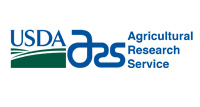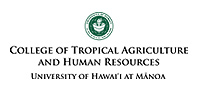Ecology: Life and the Environment
Ecology, a broad discipline within biological sciences, is the study of interactions between organisms and their environment. Ecology lays the foundation for many natural sciences, allowing scientists to explore broad patterns as well as fine-scale phenomena. Through activities both in the lab and in local habitats, students will gain experience in experimental design, data collection, and critical thinking.
Lab 1
Categorizing Earth
Ecology is the study of interactions between organisms and their ecosystem. Thus, the foundation of this field lies in measuring both abiotic and biotic factors and examining the relationships between them. Students will explore how scientists use these factors to divide the Earth into biomes and ecosystems and dip their toe into exploring pond ecology.
January 20, 2024
10 AM to 1 PM
10 AM to 1 PM
Lab 2
Life on Earth
Scientists estimate there are between 2 million to 10 million species on Earth and only a small percentage have been discovered. How do scientists study so many species? This lesson explores the study of species at a broad level including species diversity and how communities of plants and animals change over time.
February 3, 2024
10 AM to 1 PM
10 AM to 1 PM
Lab 3
Field Methods
Time to take the science outside! Ecology relies on observations of nature followed by forming hypotheses. Students will answer some hypotheses of their own, but first, they must collect data.
In this lesson, the class will visit a local site to collect data on plant or animal species and physical environmental traits. Details on the location and what to bring will be provided during Lab 2.
In this lesson, the class will visit a local site to collect data on plant or animal species and physical environmental traits. Details on the location and what to bring will be provided during Lab 2.
February 10, 2024
10 AM to 1 PM
10 AM to 1 PM
Lab 4
What’s on the Menu?
Ecologists don’t just study how organisms interact with their environment, but also how different species interact with each other. Students may already know about food webs, but this lesson will expand on critical links between organisms within a food web.
February 24, 2024
10 AM to 1 PM
10 AM to 1 PM
Lab 5
Complex Communities
Communities of organisms can interact in many ways, some more direct than others. These interactions shape populations of individual species as well as which species coexist in an ecosystem. Students will be introduced to statistics and models that help ecologists study and generalize patterns of species interactions.
March 2, 2024
10 AM to 1 PM
10 AM to 1 PM
Lab 6
Where Do I Belong?
Some species are very unique and some share traits with organisms both near and far. How and why do these differences and similarities evolve? This lab integrates previous topics to help students understand plant and animal adaptations and the role species play in their environments.
March 9, 2024
10 AM to 1 PM
10 AM to 1 PM
Lab 7
Island Ecology
Islands pose different challenges that shape their species' communities. Island archipelagos, such as Hawaii, create even more unique species patterns. Students will examine how island environment and location affect the species that colonize and evolve there.
April 6, 2024
10 AM to 1 PM
10 AM to 1 PM
Lab 8
Human Impacts
Humans have created new ecosystems across the globe. We have changed abiotic environmental factors as well as directly manipulated living organisms, for better or worse. This lab explores both negative human impacts as well as fields of science dedicated to protecting and maintaining plants, animals, and the environment.
April 13, 2024
10 AM to 1 PM
10 AM to 1 PM
Lab 9
Science Communication
Ecologists often study topics that are important to share with the public, governmental agencies, and other scientists. Students will get a glimpse into integrating ecology and active environmental management. Finally, students will present their own results from their projects that began earlier in the unit.
April 27, 2024
10 AM to 1 PM
10 AM to 1 PM














